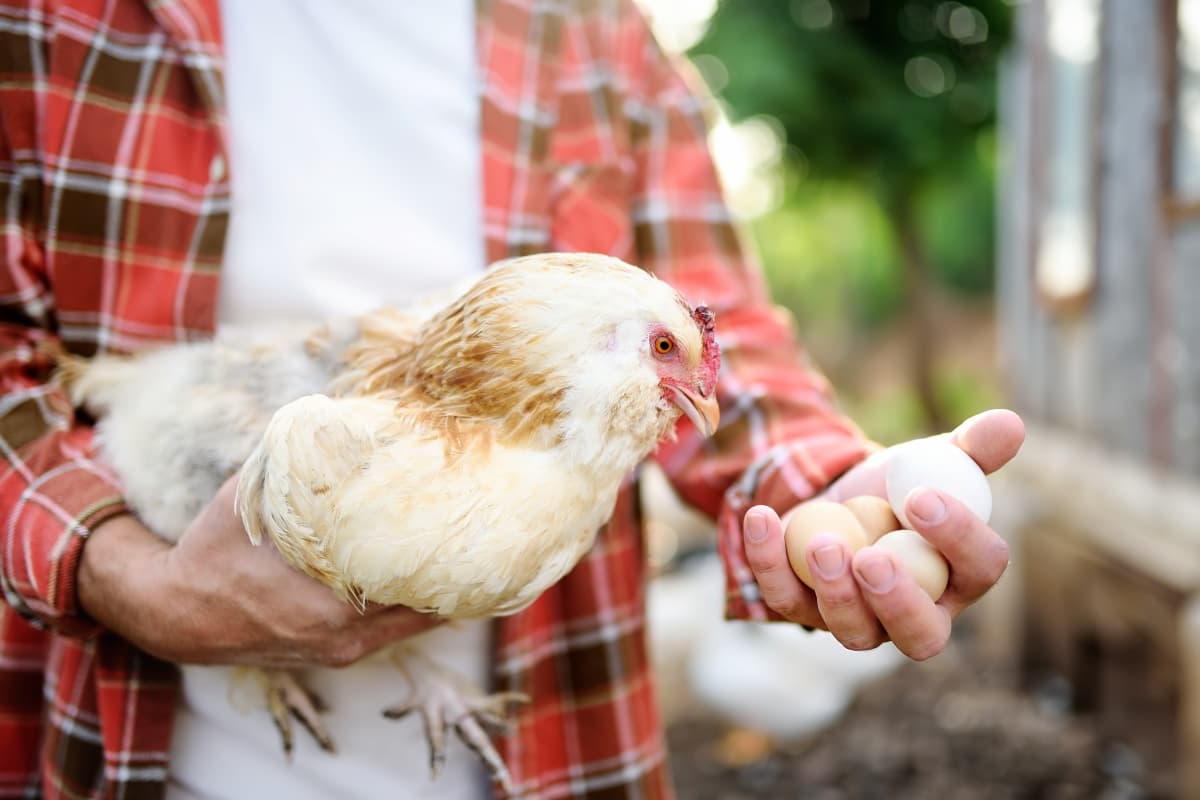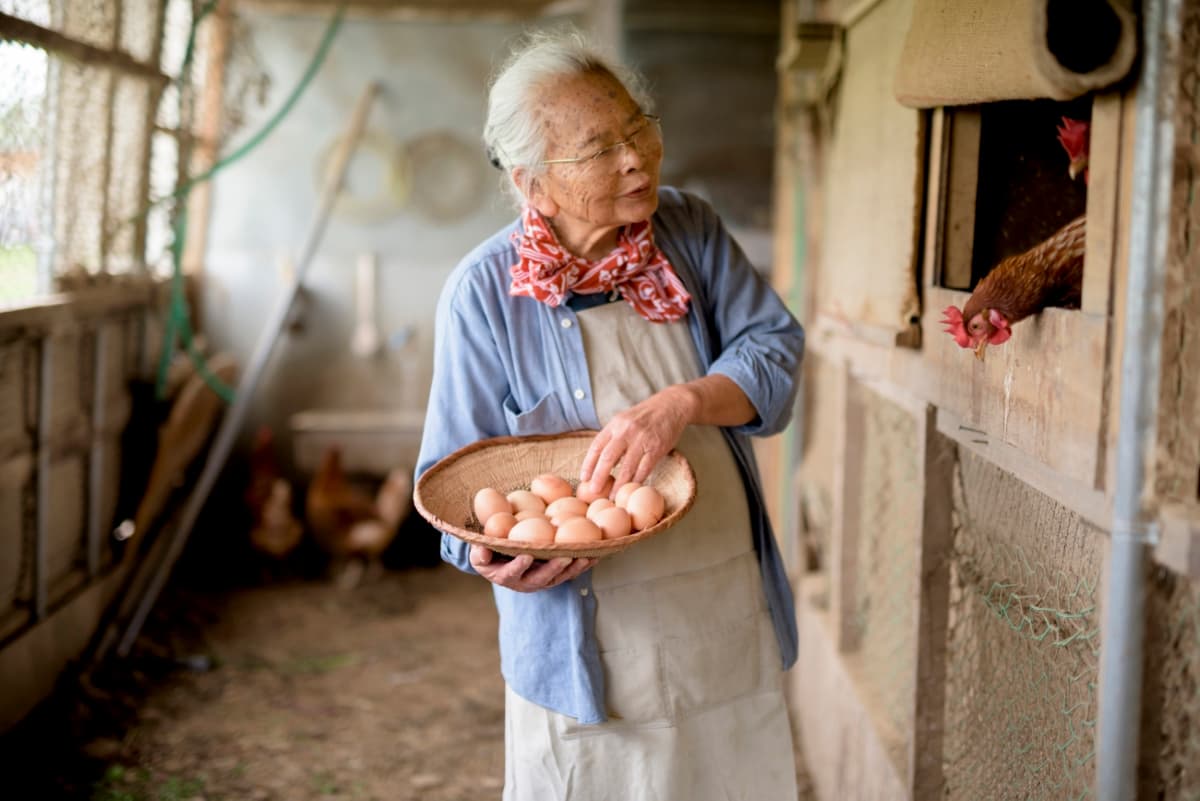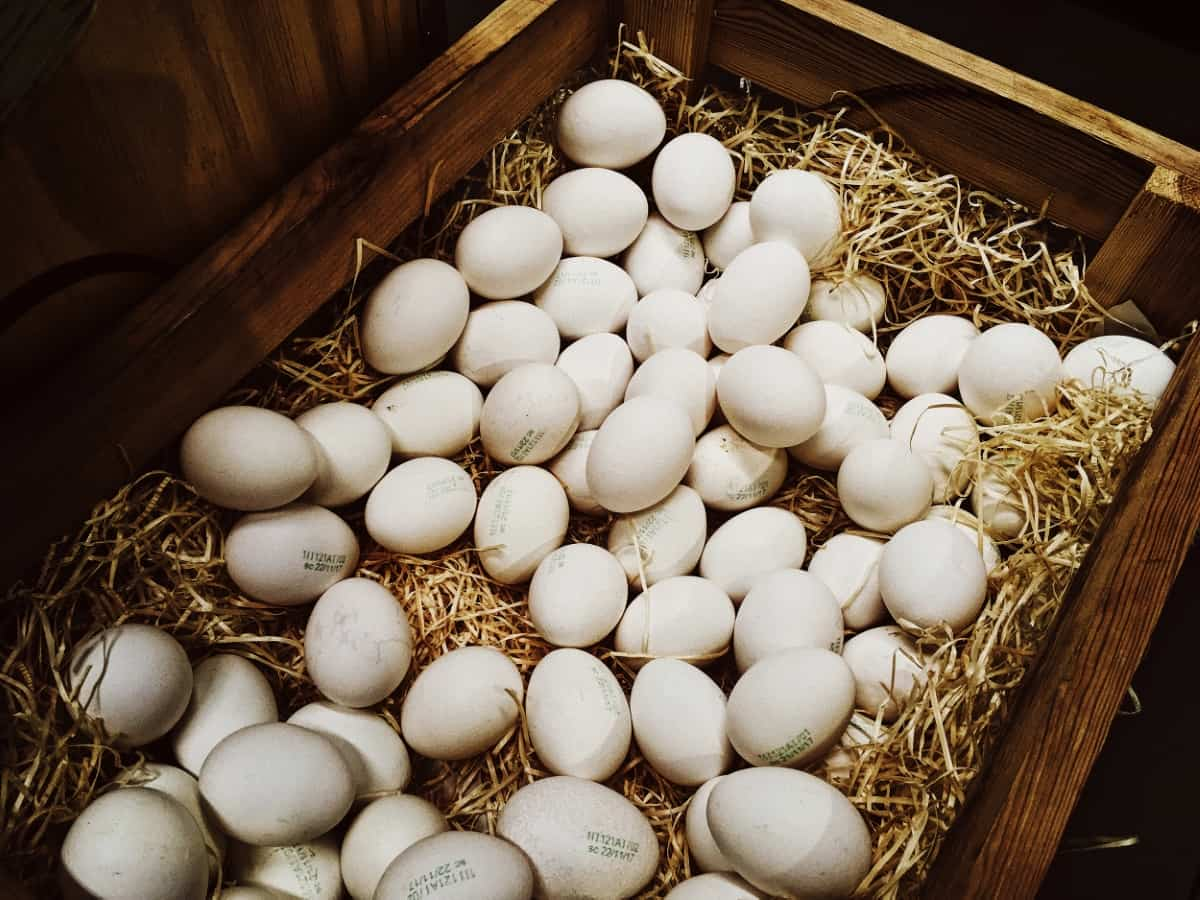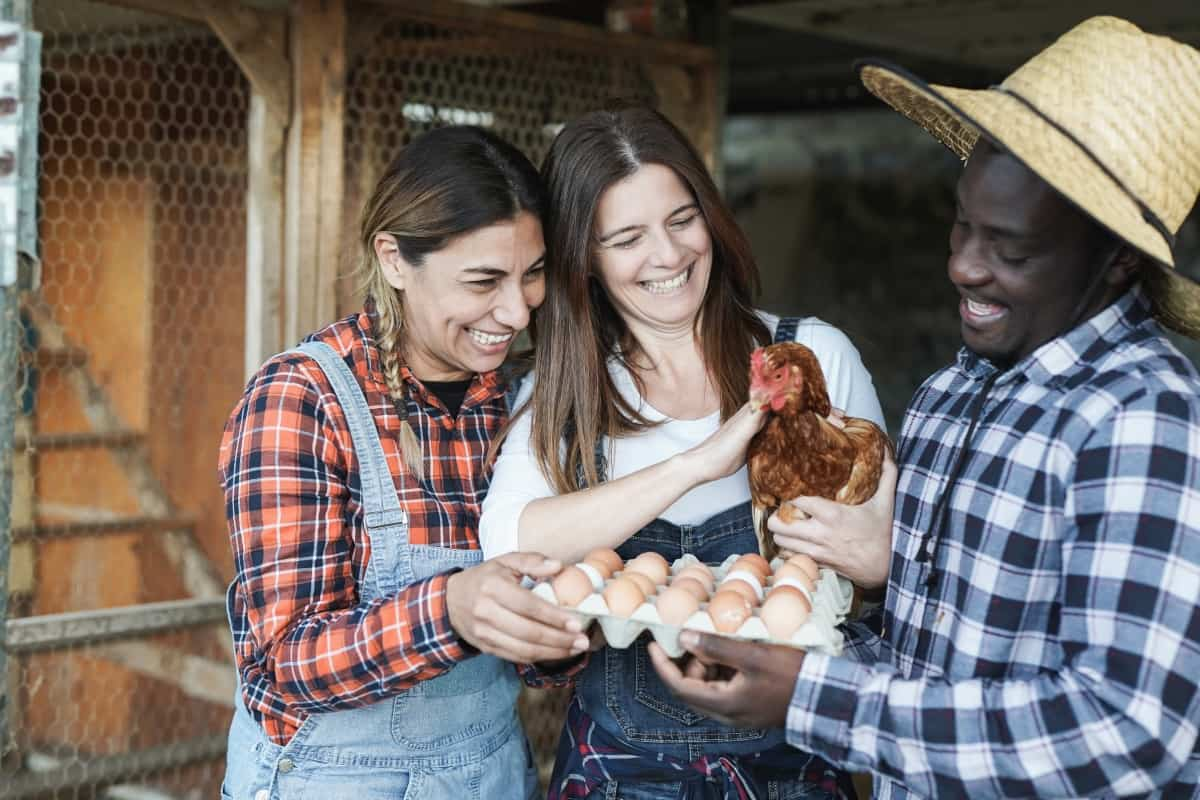Whether you have a small backyard flock or a larger commercial operation, raising chickens can be a rewarding experience. When your hens start laying eggs, it is one of the most exciting milestones in chicken keeping. The chickens are not likely to lay eggs immediately after hatching, so you may have to wait a while. To gain a better understanding of how chickens lay eggs, we will explore the factors that affect when they begin to lay eggs.

When Will My Chicken Start Laying Eggs?
What Age Does My Chickens Usually Start Laying Eggs?
It takes an average of six months for a young female chicken to lay eggs or “come into lay.” Depending on the chicken, some may lay eggs as young as 16 to 18 weeks, while others may wait until they are close to 8 months old (28 to 32 weeks). The most common age for chickens to start laying eggs has been between 20 and 22 weeks, although we’ve had some extra-early overachievers and our fair share of late bloomers over the years.
When Do Chickens Start Laying Eggs By Breed
The breed of your chickens will also influence when eggs begin to appear, along with their age. Certain breeds of chickens begin laying eggs earlier than others, and each breed has its average egg development age. Leghorns, Golden Comets, Sex Links, Rhode Island Reds, and Australorps are some chickens bred for egg production that begin laying eggs early (as early as 17 or 18 weeks old). On the other hand, the Wyandotte, Orpingtons, and Barred Rocks tend to take a bit longer. A known trait of our Easter Egger ladies is that they are always last to add their colorful eggs to the basket.
How Long Does it Take for a Chicken to Lay an Egg?
Around 24 hours are required for a chicken’s body to produce eggs. After that, it will take them another 20-30 minutes to lay it. A consistent egg-laying schedule requires adequate daylight. A chicken will produce eggs consistently if it receives 12-14 hours of daylight daily. It is natural for your chicken to produce fewer eggs during the winter months (or to stop laying altogether) due to the reduction in daylight. You would likely not receive your first egg until the following spring if a chicken reached maturity (18-24 weeks) during the fall and winter months.
In case you missed it: Are Herbicides and Pesticides Safe for Chickens?: Keeping Your Flock Healthy and Happy

How to Tell When Your Chickens are Ready to Start Laying Eggs
Enlarged Combs and Wattles
In chickens, the combs are the red, fleshy parts of their heads, while the wattles hang below their beaks. As the bird ages, these parts become larger and more red. If it happens at a young age, it could indicate that your chicken is a rooster. As their hormone levels shift, young females’ combs and wattles change from light pink to vibrant red. It’s almost showtime if these chicken parts are swollen and red.
Your Chickens Start Exploring the Nesting Boxes
Chicks don’t seem interested in nesting boxes when they are young. As they mature, they begin to test out different boxes, sit in them, and generally hang out in that area. Eggs are sometimes laid on coop floors or hidden in grassy backyard patches by chickens. Place false eggs inside each nest to encourage them to lay directly into their nesting boxes. Many chickens prefer laying eggs next to each other. A fake wood egg or golf ball would be an excellent prop.
The Chickens Eat More
The inside and outside of our bodies undergo numerous changes during pregnancy. There isn’t much difference between chickens and humans. Growing and laying anything takes a lot of energy, making you work up an appetite. The nutritional requirements of laying hens differ drastically from those of young birds on starter feeds as they mature. Protein and calcium are added to layer feeds to help form eggshells. After your young chickens reach 18 weeks or their first eggs are laid, slowly transition them to this feed. Crushed oyster shells or eggshells can also be added to your chickens’ food to provide additional nutrition.
The Chickens Get Louder
Most people view a crowing rooster as an annoyance but haven’t heard a chicken’s song. You may have some hens preparing to lay eggs if the noise in the house starts getting louder. Chickens tend to squawk for hours before laying eggs.
Nervous
There may be a bit of nervousness and skittishness on the part of the hen. It is common for hens to appear nervous when looking for a perfect egg-laying location before laying an egg.
In case you missed it: The 10 Best Chicken Breeds for Laying Lots of Eggs

Ways to Encourage Chickens to Lay Naturally
Spring and summer are the best times for our chickens to lay eggs naturally. Remember, egg production slows and stops during the dark fall and winter hours due to the great energy they expend keeping warm. Your chickens can lay more naturally if the daylight hours are longer in the spring and summer. Rather than using supplemental light, it is suggested to do the following.
Preparing for Egg Laying
It’s always better to prepare your chickens and provide them with a comfortable environment than to have them lay their eggs on the ground. Ensure that your chickens’ nesting boxes are clean and that there is plenty of straw to nest in if you suspect they will lay eggs soon. Ensure the boxes are kept off the coop floor and in a dark place. The more relaxed and calm they feel, the easier they begin. Don’t let the boxes or coop get too dirty, and keep them clean. Due to the hard work, they do for you, your hens deserve a safe, clean environment.
Feed Them Extra Protein
To encourage egg production, chickens should be fed a high-protein diet consisting of extra feed, mealworms, and sunflower seeds. It is just now that their bodies are beginning to replenish nutrient stores that have been used up over the winter.
Feed Them Extra Calcium
- In addition to crushed eggshells, dark leafy greens can also provide your chickens with extra calcium. Kale and spinach are great options.
- Once they start laying, feeding with dark leafy greens will also give you beautiful dark egg yolk.
- As well as providing calcium in the layer feed, you will want to ensure they have a good complete layer feed.
Let Them Free Range as Much as Possible
It is okay to let your chickens free range if you have a safe area and protection from predators. As a result of the fresh air, sunshine, grass, and bugs, their bodies start producing eggs.
In case you missed it: Cold Weather Care for Chickens: How to Keep Chickens Warm in the Winter

Conclusion
Several factors can influence when a chicken starts laying eggs, including its breed, age, and environment. A chicken will begin laying eggs between the ages of 5 and 6 months, but this can vary from breed to breed. Nutrition and a healthy environment will support a chicken’s reproductive development and encourage healthy egg production.
- Feed Your Flock for Less: Top 10 Tips to Save on Chicken Feed
- Ultimate Guide to Ossabaw Island Hog: Breeding, Raising, Diet, and Care
- Hatching Answers: The Top 10 Reasons Your Chickens Aren’t Laying Eggs
- Eggs and Economics: Breaking Down the Cost of Raising Backyard Chickens
- Defend Your Greens: Proven Methods to Keep Iguanas Out of Your Garden
- Ultimate Guide to Cinnamon Queen Chicken: A Comprehensive Guide for Beginners
- Ultimate Guide to California Tan Chicken: Breeding, Raising, Diet, Egg-Production and Care
- Ultimate Guide to Marsh Daisy Chicken: Breeding, Raising, Diet, and Care
- 10 Types of Chicken Farming Businesses You Can Start for Profits